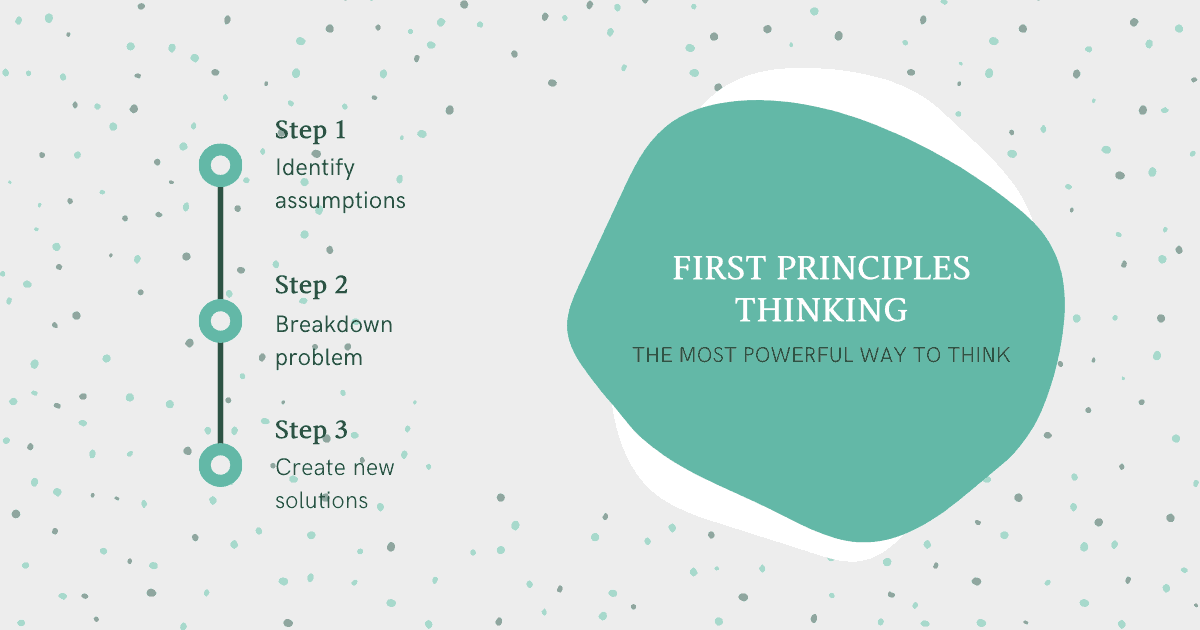
## What is First Principle?
The concept of "First Principle" originates from quantum mechanics and refers to starting from the fundamental facts and reasoning based on those facts to create new value. In the context of Elon Musk's development of Tesla electric cars, he applied First Principle thinking to challenge the prevailing belief that electric cars would never become popular due to high battery costs. Musk broke down the composition of battery packs and reevaluated the basic materials, which led to the realization that a significant portion of the remaining cost was attributed to human collaboration and could be optimized.


## Why is First Principle Important?
First Principle thinking allows us to deconstruct complex problems and understand their underlying principles or fundamental truths. By questioning assumptions and breaking down concepts into their most basic components, we can uncover new insights and solutions that may not be apparent through analogical thinking or relying on established practices. This approach enables innovation, cost reduction, and breakthrough advancements in various fields.
## Application Example of First Principle
Elon Musk's companies, such as SpaceX and Tesla, provide notable examples of applying First Principle thinking. Musk challenged the conventional wisdom in the aerospace and automotive industries by reevaluating the fundamental factors that contribute to high costs. For instance, he discovered that the cost of raw materials for rockets accounted for only 2% of the total cost, leading him to focus on optimizing the remaining 98% through innovative manufacturing processes. Similarly, in the case of Tesla, Musk's team deconstructed the battery pack's components and reconstructed them using basic materials, resulting in significant cost reductions.
## When to return to First Principle?
It is important to be aware of when we should return to First Principle thinking. This can be prompted by situations where existing assumptions or established solutions are not yielding satisfactory results or when faced with complex problems that require a deeper understanding of underlying principles. By questioning conventional wisdom and going back to first principles, we can gain a fresh perspective, challenge existing limitations, and identify innovative solutions.
Overall, the First Principle approach offers a powerful framework for problem-solving and innovation. It encourages critical thinking, deep analysis, and the ability to leverage fundamental truths to drive meaningful progress.